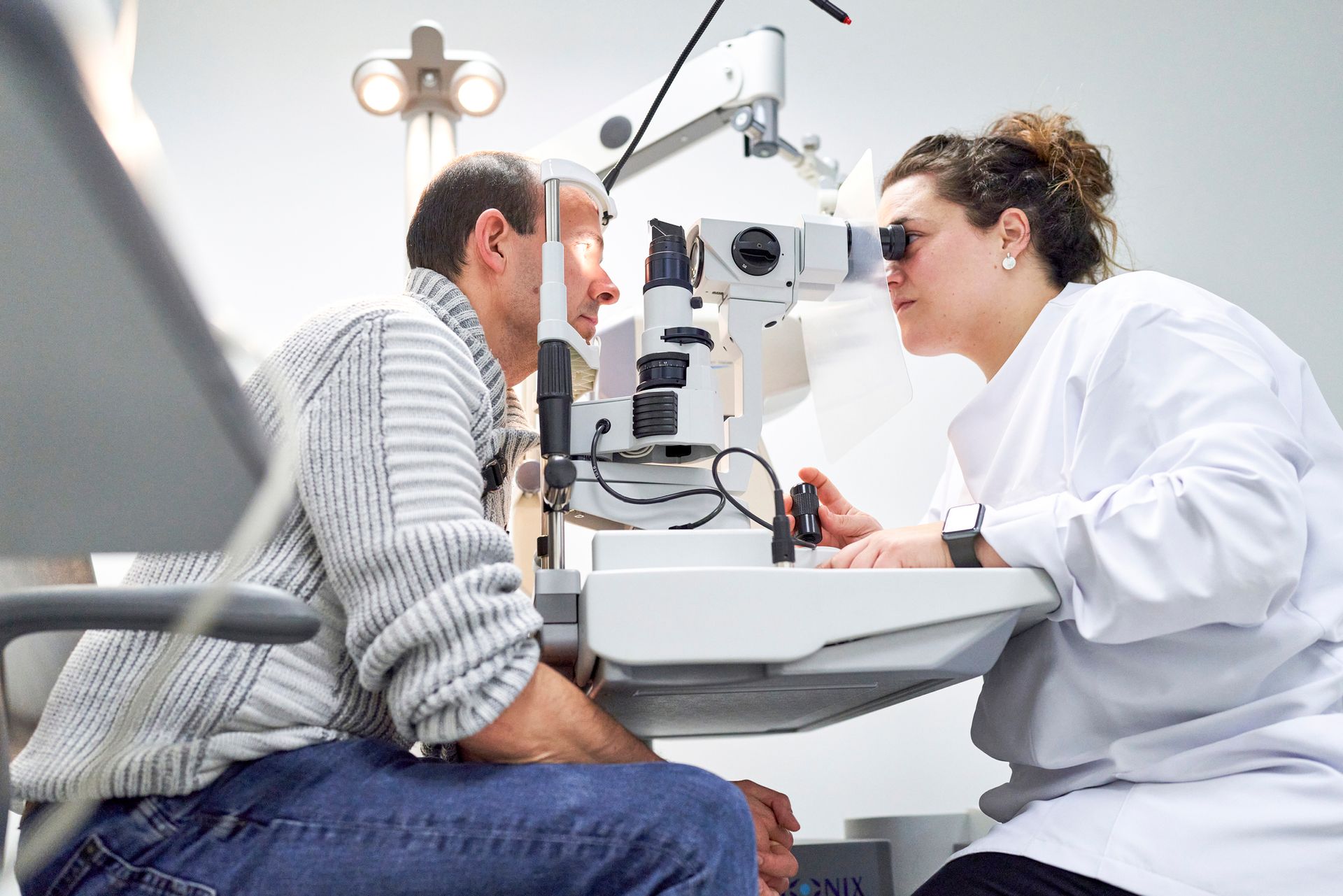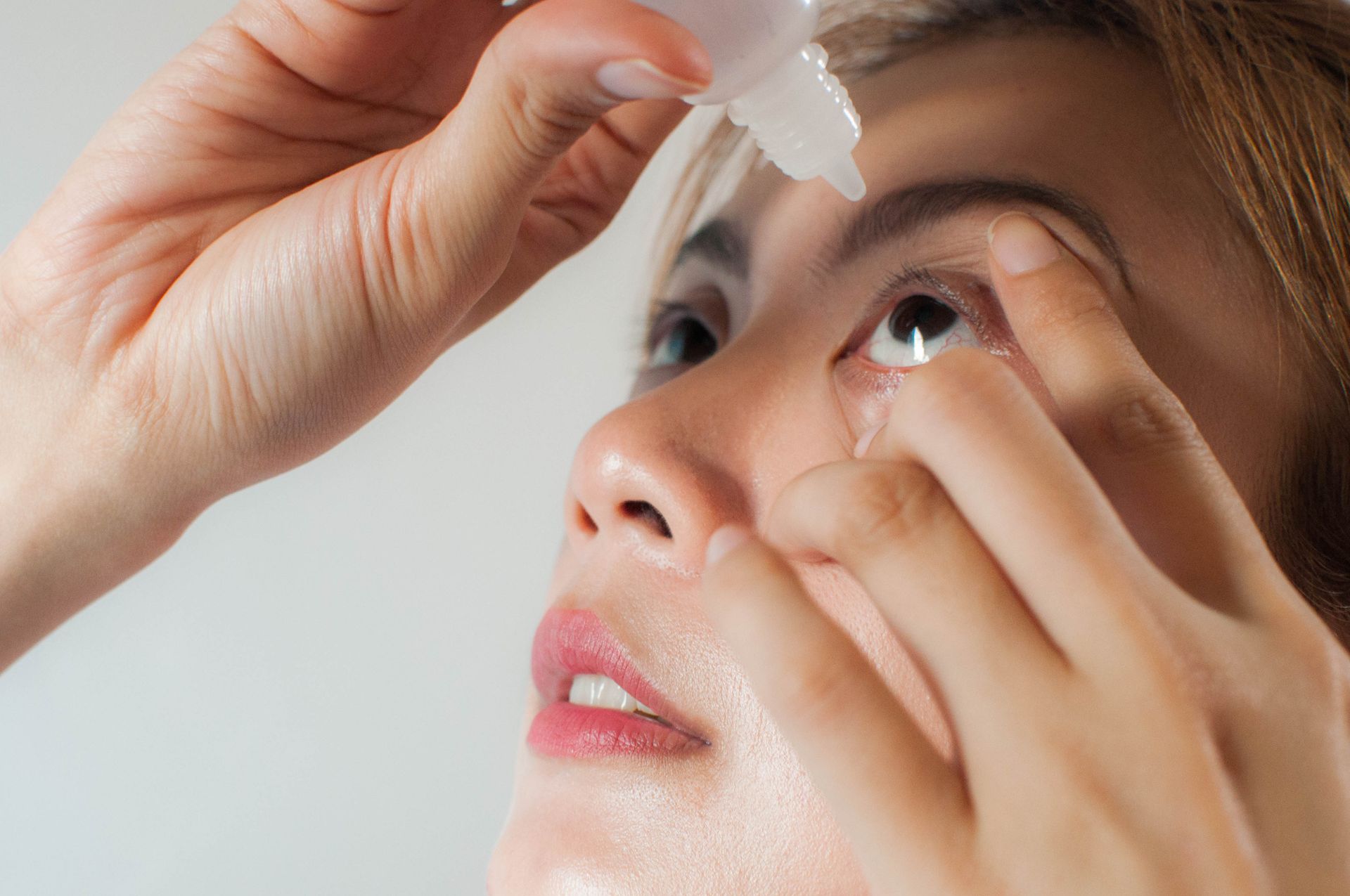4 Ways to Find Relief From Dry Eyes
- By Admin
- •
- 01 Nov, 2018
- •

Dry-eye syndrome is a relatively common occurrence, and it can be more than annoying. If you suffer from dry eyes, you may experience a gritty or blurry feeling in your eyes, or they may water, itch, burn, or sting. Some habits can heighten your symptoms, while others can relieve them.
Read on to learn four ways that you can relieve the symptoms of dry-eye syndrome.
Read on to learn four ways that you can relieve the symptoms of dry-eye syndrome.
1. Take a Break From the Screen
Many experts concur that the use of digital devices such as computer monitors, tablets, and cell phones can have an effect on the eyes. In addition to causing eyestrain and fatigue, these devices may contribute to dry-eye syndrome. If you spend hours each day staring at the computer monitor or texting on your phone, you could be making your condition worse.
When your eyes are fixed on a digital screen, blinking becomes less frequent. Less blinking means your eyes dry out faster, as they become less lubricated. In addition, the blue light emitted from the screen may contribute to dry eye as well. To help minimize the effect, use a blue-light feature that may be built-in to your device.
Equally important, take frequent breaks while you use your digital devices. Periodically look away from the monitor or phone screen and focus on an object that is about 20 feet away.
2. Consider Contact Lens Alternatives
When wearing contact lenses, oxygen to the eye becomes somewhat obstructed. In effect, your contact lenses may cause irritation and dryness. If you've noticed your dry eye condition has begun after wearing contacts, you might want to switch to wearing eyeglasses. If this is not an option for you to consider, speak to your ophthalmologist, who may prescribe eye drops or a new prescription.
As an alternative, your eye doctor may prescribe silicone hydrogel contact lenses. These provide more comfort and allow greater levels of oxygen to reach the eyes.
As an alternative, your eye doctor may prescribe silicone hydrogel contact lenses. These provide more comfort and allow greater levels of oxygen to reach the eyes.
3. Cut Back on Antihistamines If Possible
Do you take antihistamines for allergies? If you've been taking antihistamines routinely, you might want to cut back. While antihistamines provide relief from the symptoms of allergies and combat runny nose and sneezing, they may also reduce tear production and dry out your eyes in the process. Speak to your doctor about alternative methods for treating your allergies, or cut back on the usage of antihistamines.
4. Check Your Environment
Are you subjected to cigarette smoke around you? If so, the irritation from the smoke may be making your dry eyes even more irritated. The solution is obvious. Stay away from cigarette smoke. If you yourself smoke, doing this may be difficult. Talk to your doctor about quitting. He or she can help you as work to overcome your addiction.
You should also evaluate your indoor humidity levels. Low humidity levels may be causing your dry-eye syndrome as well. This issue is especially prevalent during winter, when indoor heating is used. Raise your home’s humidity levels with the use of a humidifier.
Alternatively, you can try a few tricks to raise humidity in your home. Consider placing houseplants throughout your home, as the leaves will release moisture. You might also air-dry your clothes and allow the moisture to evaporate into the air. Leaving the bathroom door open after a shower may also put more moisture back into the air and raise the humidity levels in the home.
If all of the above tips do not bring you relief from your dry eyes, schedule an appointment with your eye doctor. An ophthalmologist specializes in treating various conditions affecting the eyes and vision. He or she can get to the root cause of your problems and recommend a smart solution to bring you continued relief.
Glasses and contacts are two of the most popular choices for improving vision. For assistance deciding which is right for you, read this guide.
Despite diligent care for the muscles and bones, it is unfortunate that athletes often overlook eye health. Read this blog to learn more.
Vision problems can be common as people age. If you're getting older and want to learn more, check out our blog to read about a few common eye problems.
Pink eye can affect both kids and adults. Learn more with this overview of the causes, symptoms, and options for treatment of this eye condition.
Do you wear contact lenses? If so, read our blog to learn about the telltale signs that indicate it's time to replace your lenses.
Have you ever wondered about the impacts of screen time on your eyes? Learn 3 effects of long-term digital eye strain and prolonged screen use.
Your peripheral vision is essential. Take a look at four issues that can lead to chronic peripheral vision loss and how an ophthalmologist can help.
Vision problems can take many forms and occur for many reasons. Read this blog to learn about four underlying health conditions that can affect vision.











